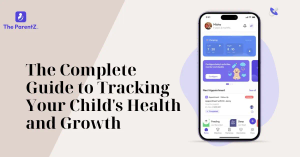When Pregnancy Scans Cause Wallet Pain
Pregnancy is supposed to be a time of joy, but for many expectant families in India, the rising cost of medical scans can come as a rude shock. A simple ultrasound, once considered affordable, now often comes with a hefty price tag, especially in urban centres. From ₹500 in small clinics to ₹4000–₹6000 in private hospitals for advanced scans, the expense adds up quickly over the course of pregnancy.
How Many Scans Do You Really Need?
According to the World Health Organization (WHO) and India’s Ministry of Health, at least three to five key scans are recommended during a normal pregnancy:
- Dating Scan (6–9 weeks) – Confirms pregnancy and estimates due date
- NT Scan (11–14 weeks) – Detects chromosomal abnormalities like Down syndrome
- Anomaly Scan (18–22 weeks) – Detailed check of fetal organs
- Growth Scan (28–32 weeks) – Assesses fetal growth and amniotic fluid
- Final Scan (36–38 weeks) – Monitors position and well-being before labour
Some women may need additional scans if complications like gestational diabetes, placenta previa, or low amniotic fluid are suspected.
So while 1–2 scans may seem optional, around 4–5 are medically justified. But why are they so expensive?
Why Are Ultrasounds Becoming Expensive?
1. Advanced Technology = Advanced Pricing
Many private centres now offer 4D/5D ultrasounds or fetal echocardiography for enhanced visuals and detailed assessments. These machines are expensive to install and maintain, raising the service cost.
2. Radiologist Expertise
Ultrasound scans must be done or supervised by trained radiologists. There’s a shortage of specialists in many areas, and quality care comes at a premium.
3. Hospital Branding and Location
A scan in a tier-1 city or a corporate hospital often includes hidden charges like consultation, report fees, and taxes. Facilities in Delhi, Mumbai, or Bangalore tend to be more expensive than small-town clinics.
4. Pre-Conception and Package Scans
Some hospitals upsell scans as part of “prenatal care packages” or “luxury maternity plans” that include add-ons you may not need.
5. Regulations and Legal Formalities
In India, the PCPNDT (Pre-Conception and Pre-Natal Diagnostic Techniques) Act regulates ultrasound to prevent sex-selective practices. Centres must maintain compliance with strict paperwork and licensing, which also contributes to higher overheads.
What Can You Do About High Scan Costs?
Here are medically sound, budget-smart tips to help you manage pregnancy imaging expenses:
1. Choose Government or Trust Hospitals
Many government-run hospitals like AIIMS, Safdarjung, or district hospitals offer completely free or subsidised scans, especially for women from economically weaker sections. Some NGOs and maternity homes also provide low-cost or free anomaly scans.
Ask your local ASHA or ANM worker for guidance.
2. Ask for Itemised Billing
Private hospitals often club scan charges with consultation or registration fees. Request a breakdown, you may find hidden extras you can avoid.
For example, insist that only essential medical scans are performed, not cosmetic 4D/5D options unless necessary.
3. Use Health Insurance or Government Schemes
If you’re covered under Ayushman Bharat, ESI, or Janani Suraksha Yojana, many of your scans may be free at empanelled hospitals.
Private health insurance plans often reimburse 2–3 pregnancy scans, especially if you’ve declared the pregnancy early.
4. Book Scans Directly at Diagnostic Centres
Going directly to reputed standalone diagnostic labs (like Dr Lal PathLabs, SRL, or Mahajan Imaging) often works out cheaper than hospital charges for the same test. Just ensure your gynaecologist approves the lab and reviews the report carefully.
5. Avoid Unnecessary Repeat Scans
Sometimes hospitals suggest repeated growth or position scans every 2–3 weeks, even in normal pregnancies. Politely ask:
- “Is this scan absolutely necessary now?”
- “Can we wait 2 more weeks unless something changes?” This ensures you’re not paying for overly cautious but non-essential checks.
6. Look for Pregnancy Packages (But Compare)
Some clinics offer antenatal packages that include all essential scans, blood tests, and consultations. These can save 15–30% if you stay with one provider, but read the fine print to ensure:
- All required scans are included
- No unnecessary add-ons
- No cost escalation later
7. Check for Free Camps and Hospital Drives
Some hospitals, especially on Women’s Day, Mother’s Day, or local festivals, conduct free pregnancy health check-up camps. These often include basic ultrasounds, haemoglobin tests, and fetal heart monitoring.
Follow your local hospital or district health office’s notice board or social media pages for updates.
When It’s Worth Spending a Bit More
Sometimes spending a little extra can offer peace of mind, especially if:
- You are over 35, where anomaly and NT scans become even more important
- There is a history of miscarriage or stillbirth
- You’re carrying twins or more
- There are warning signs like bleeding, poor fetal movement, or high-risk markers
A high-quality scan can help your doctor detect serious concerns early and may save you from bigger complications or hospital stays later.
Final Thoughts: Don’t Let Costs Dull Your Joy
Pregnancy should be about bonding, preparation, and joy, not stress over every medical bill. Scans are an essential part of prenatal care, but they should not be a source of financial burden.
Use informed decision-making, ask the right questions, and make the most of affordable options. You can be medically safe and financially smart without cutting corners.





Be the first one to comment on this story.